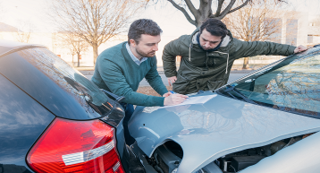Collision avoidance is the most beneficial advanced driver assistance system (ADAS) technology available for company cars, according to UK businesses.
Research from the latest Arval Mobility Observatory Barometer shows that when asked which was the most useful ADAS device fitted to company cars, collision avoidance was highlighted by more than a third (38%) of fleets.
Automatic emergency braking (37%), driver fatigue warning (35%), lane departure warning (34%), pedestrian detection system (32%), adaptive cruise control (25%) and automatic parking system (14%), were the next most popular.
Shaun Sadlier, head of Arval Mobility Observatory in the UK, said: “ADAS systems are now becoming widespread on company cars and vans, being mentioned in more fleet policy documents as employers look to further increase their focus on driver safety and behaviours.
“They are also set to become even more prevalent following recent moves by the EU to make them a standard fitment on all new vehicles introduced onto the market from later this year.”
Fleet decision-makers are increasingly familiar with this technology, explains Sadlier, and probably beginning to get a good idea of which devices work well in real-world-conditions.
“Essentially, the top five or even six results are very closely matched and indicate a general across-the-board positivity towards ADAS that is consistent across all types and sizes of fleet,” he continued.
Of these devices, most are included in the EU mandate, with adaptive cruise control and pedestrian detection systems being the exceptions.
“These tend to be more expensive and only found on higher-end models,” added Sadlier. “However, it’s interesting to see pedestrian avoidance systems named by many more respondents than in 2021’s report, up from 14% to 32%.
“This technology is seen on relatively few cars, but can be highly impressive, especially in night driving conditions where pedestrians may be harder to see.”
Arval Mobility Observatory carries out its research of key trends in the fleet and mobility sectors every year.
The 2022 Barometer talked to fleet decision makers in 26 countries and the figures shown here cover UK responses to this section of the survey.






















Login to comment
Comments
No comments have been made yet.